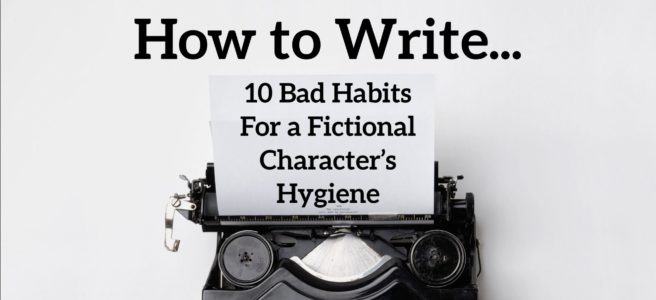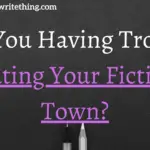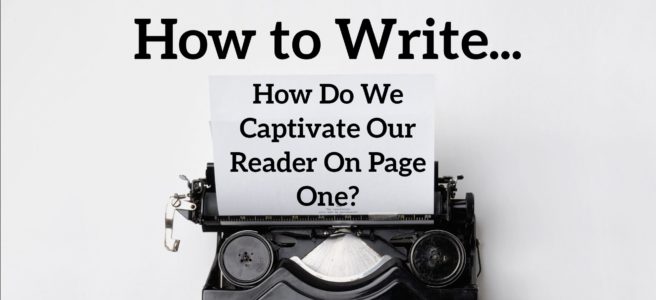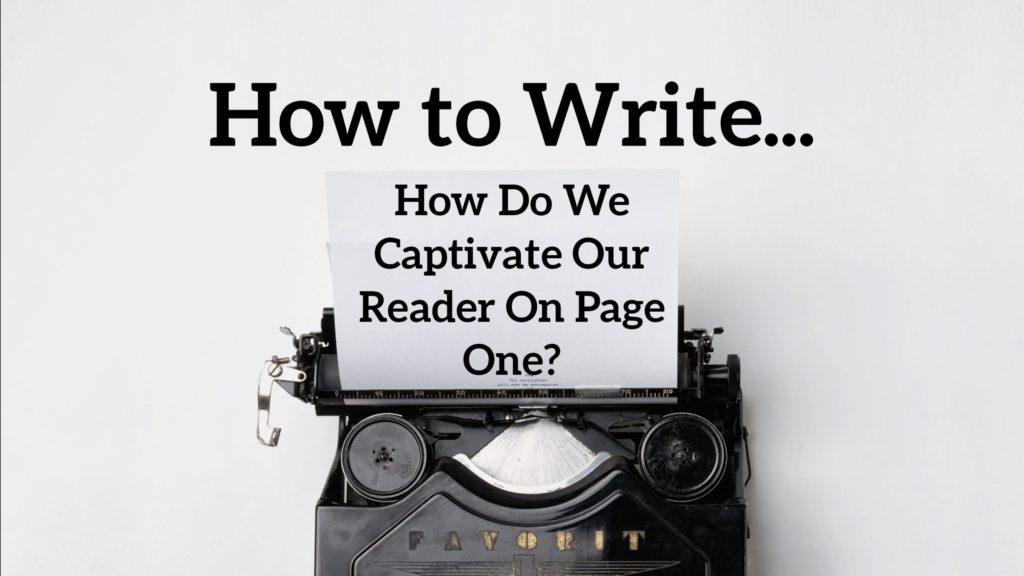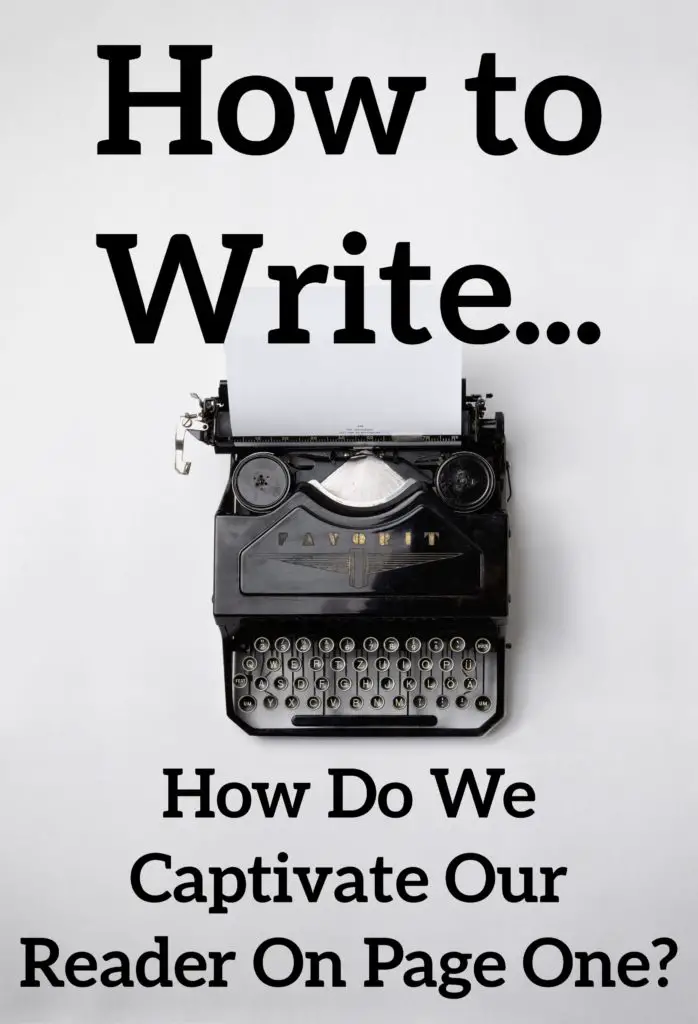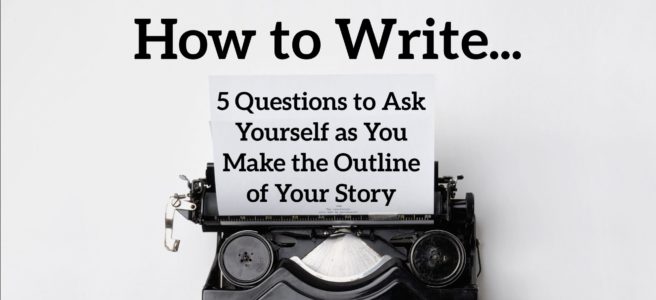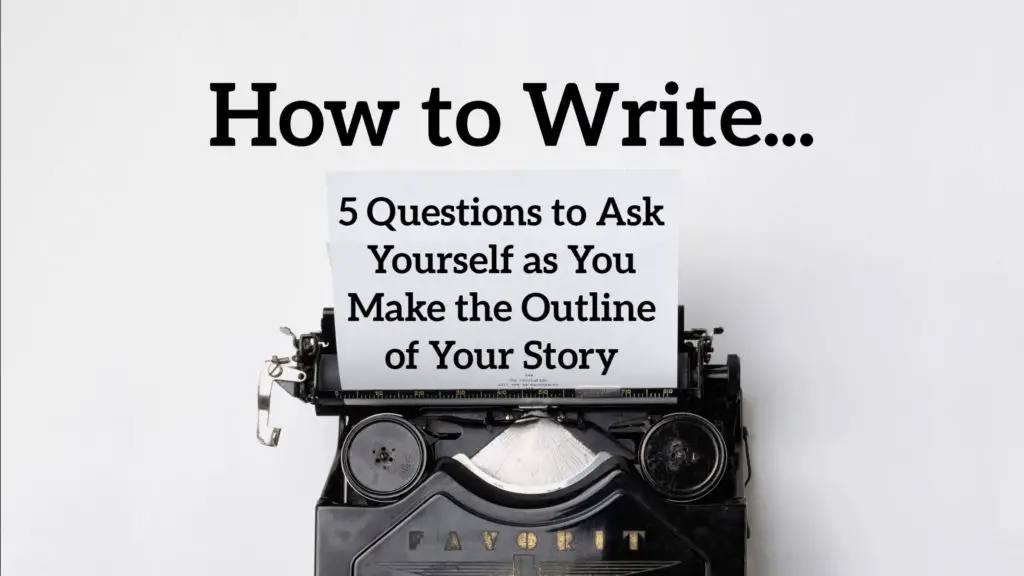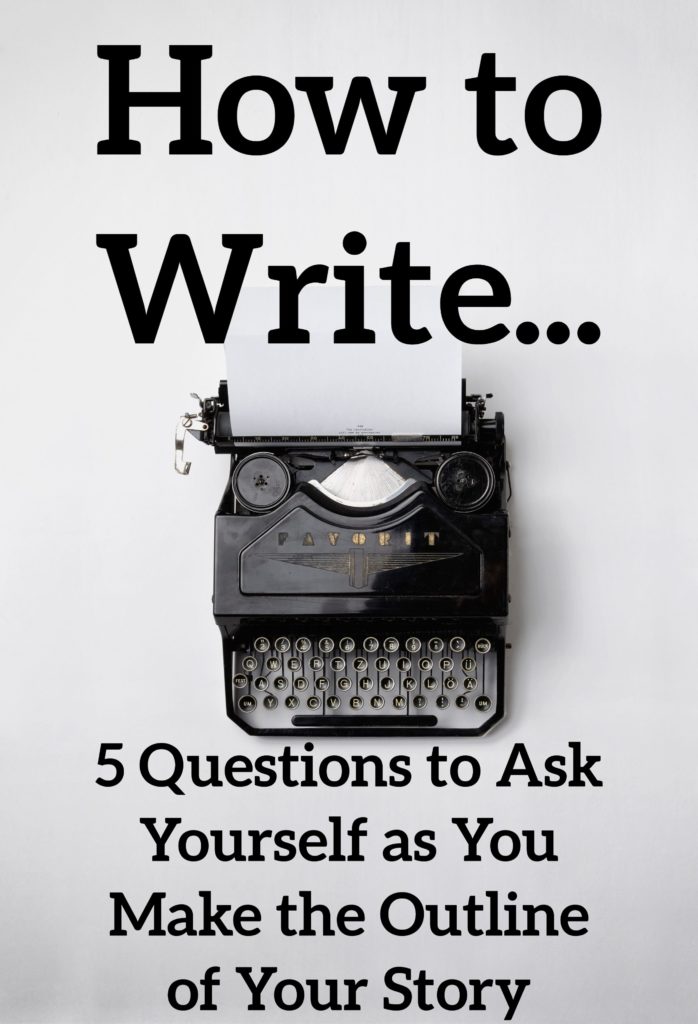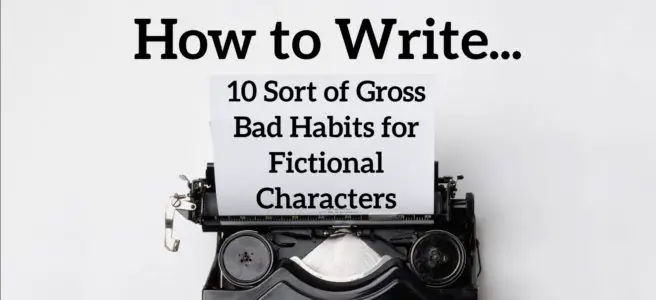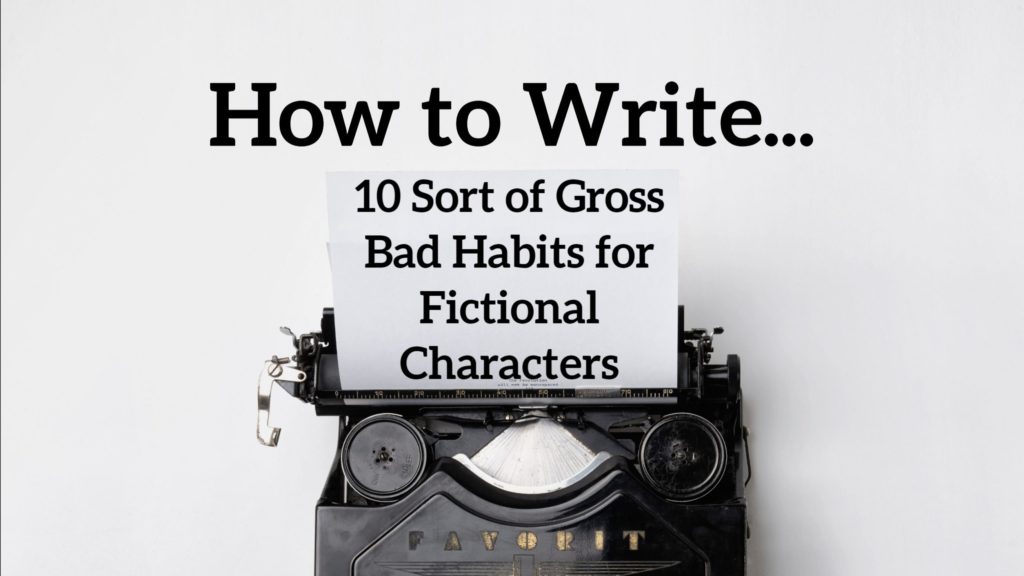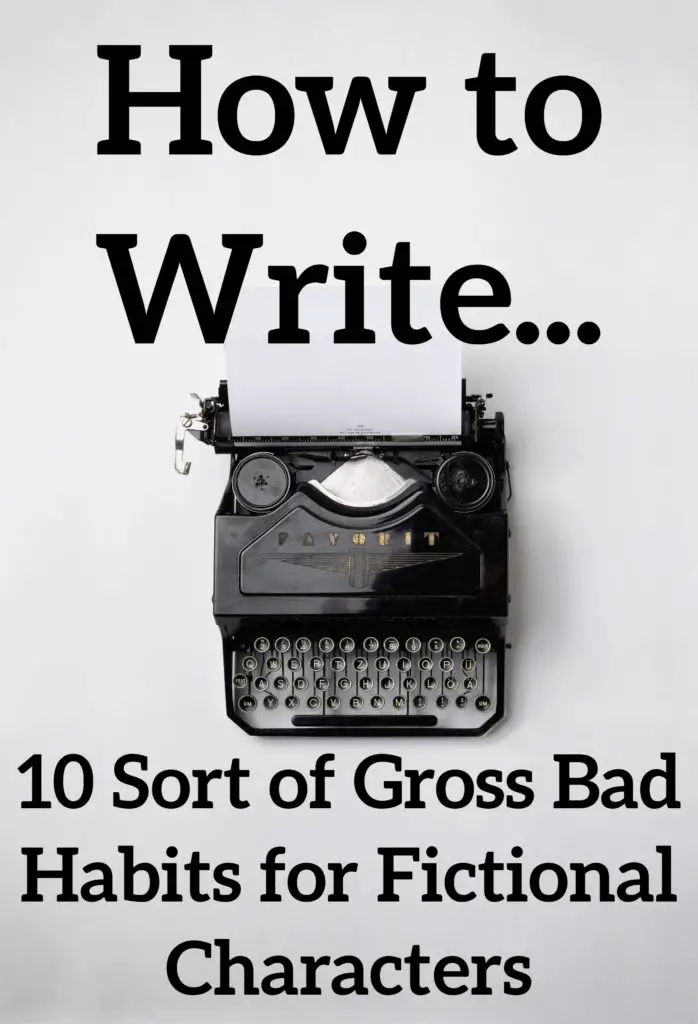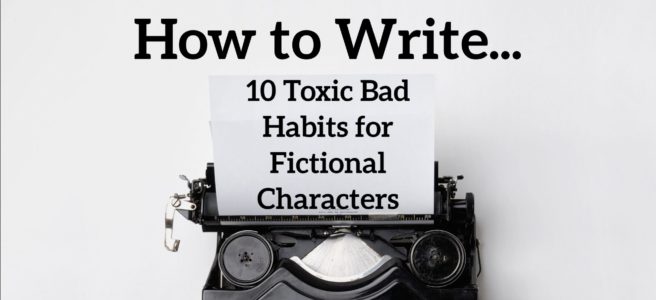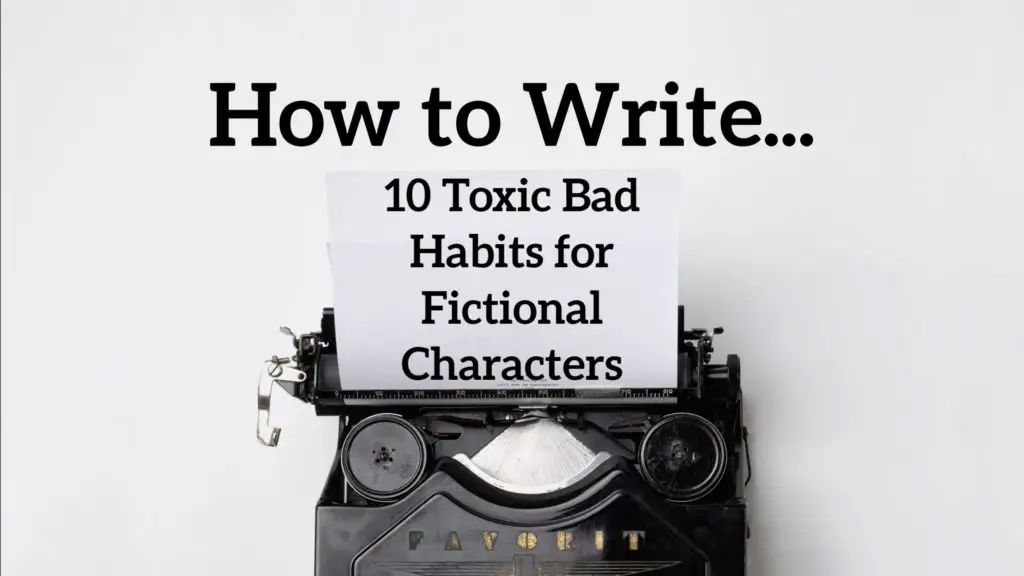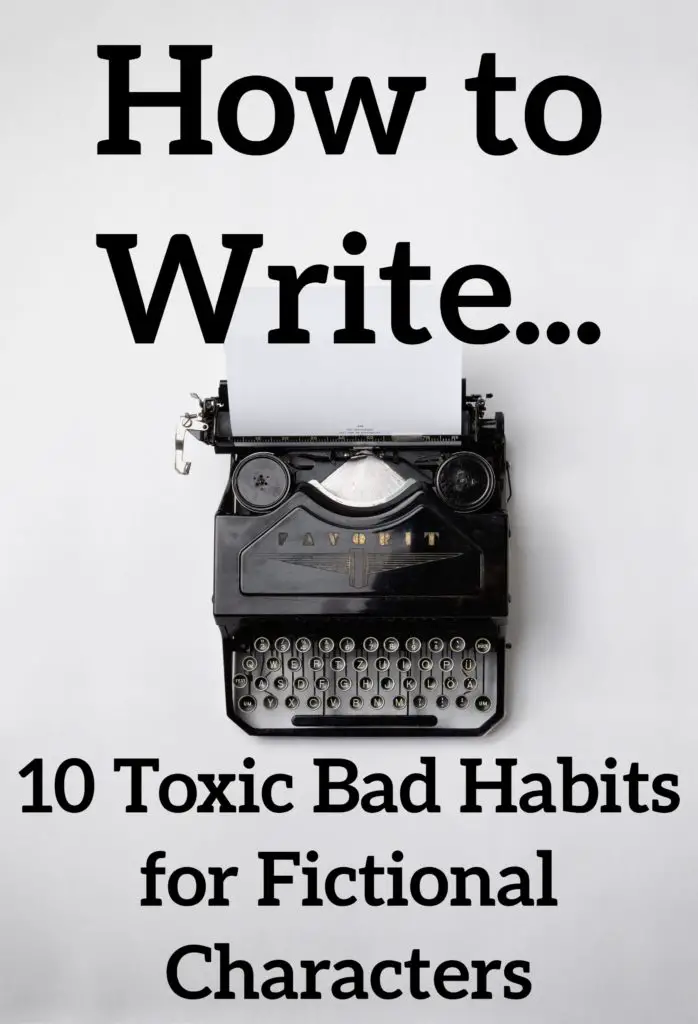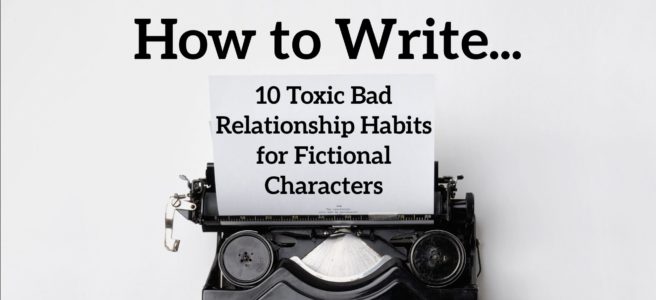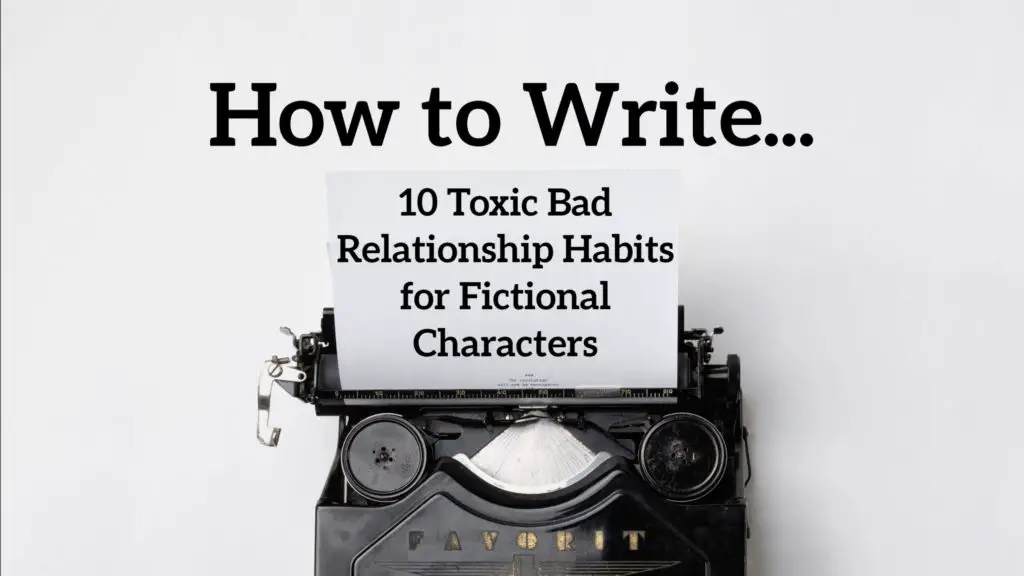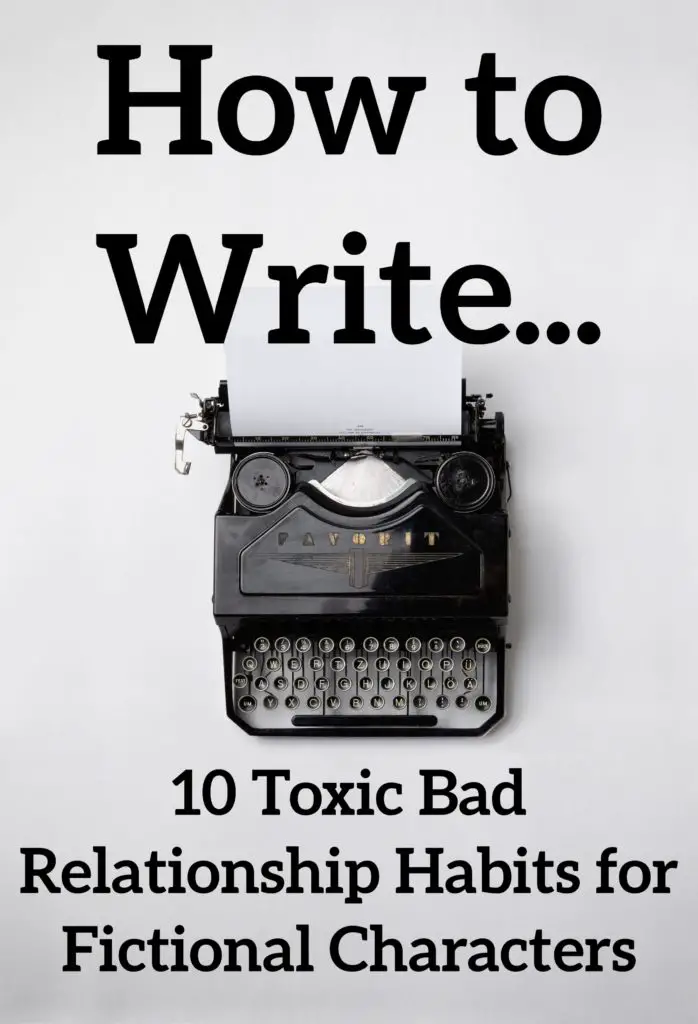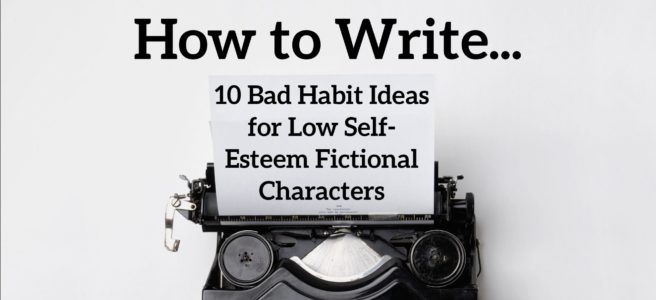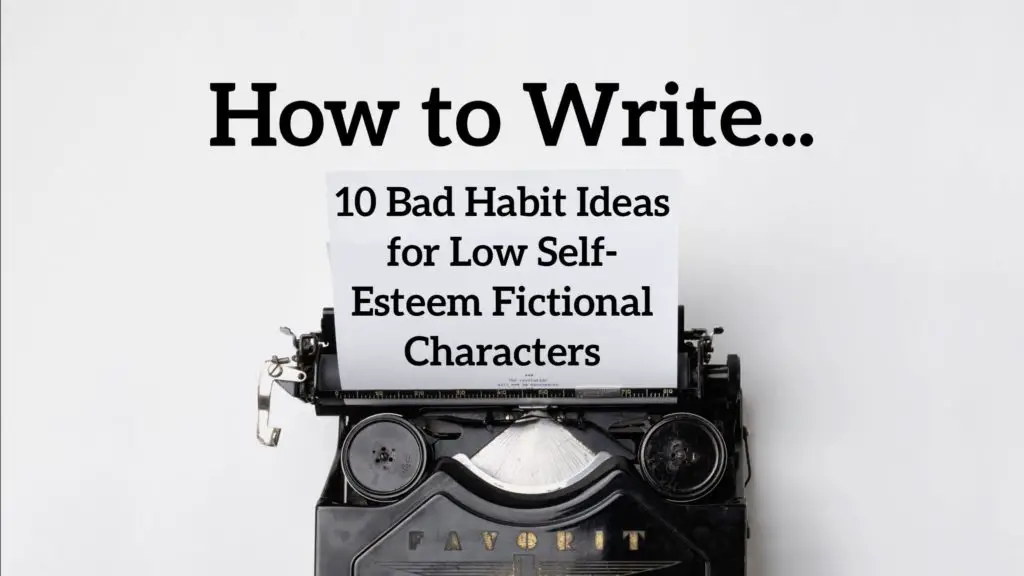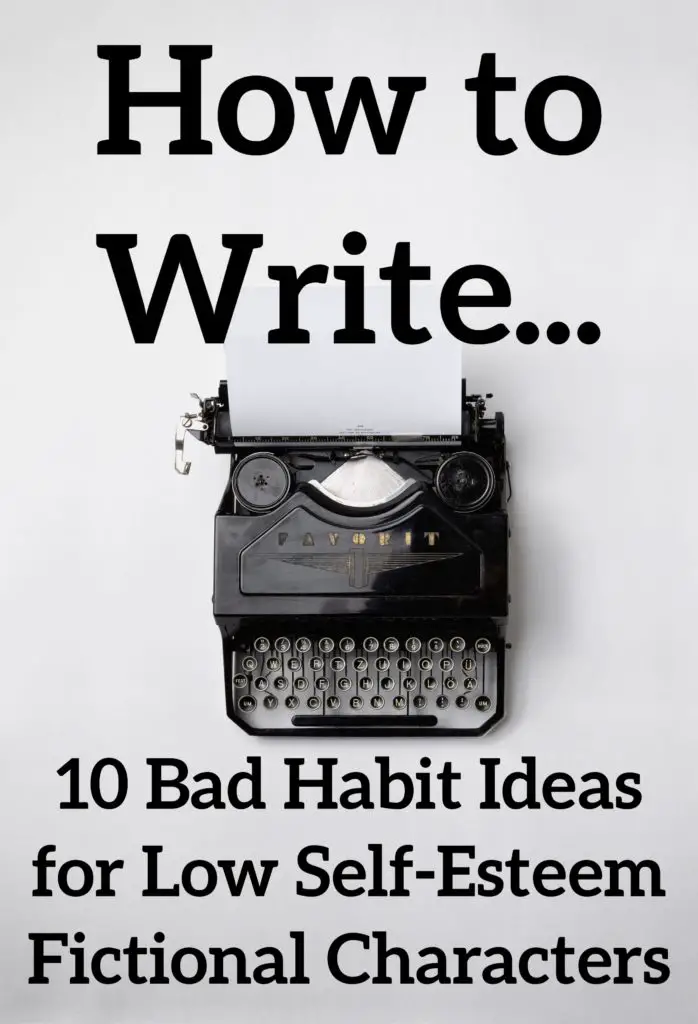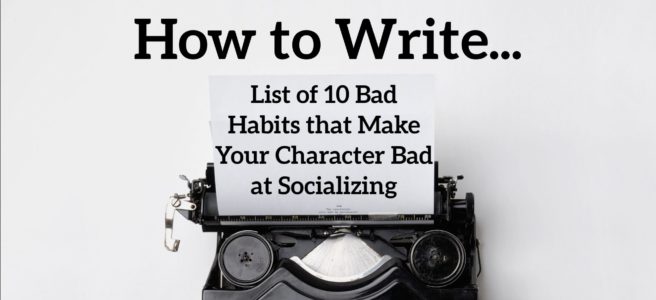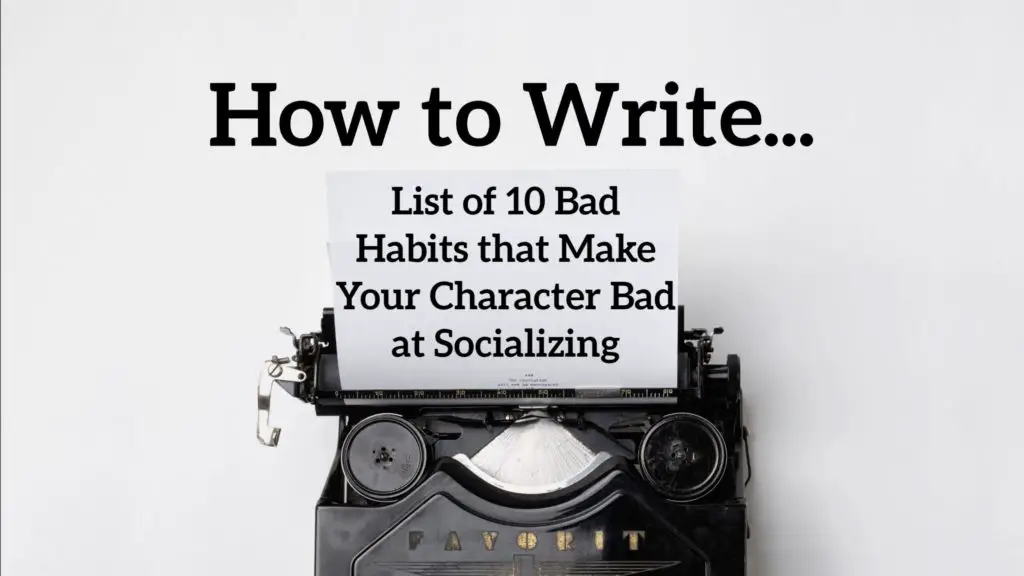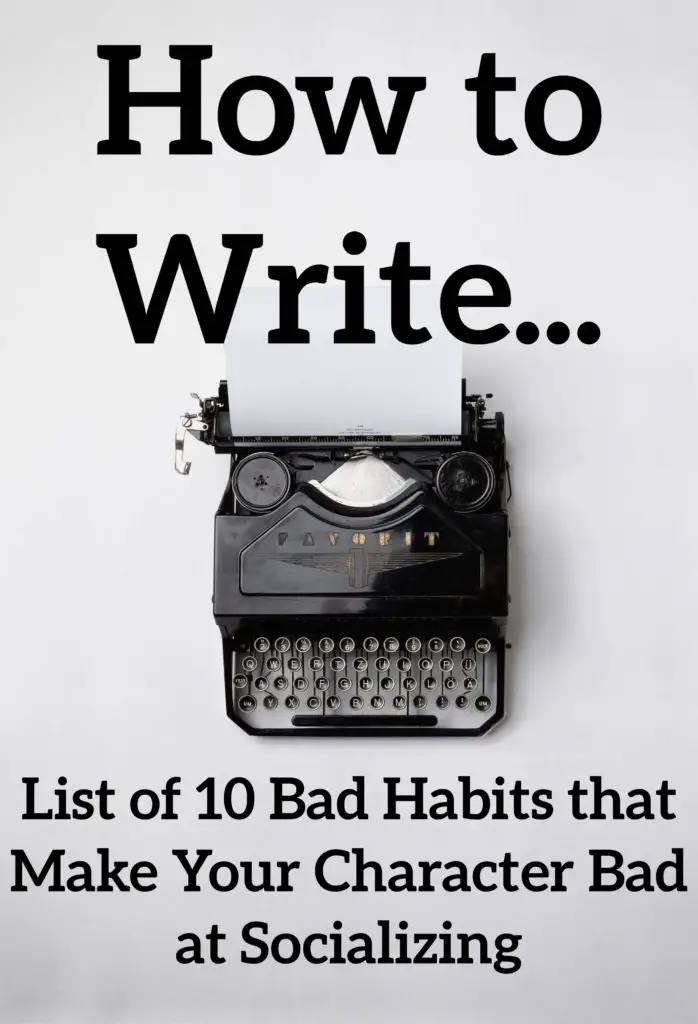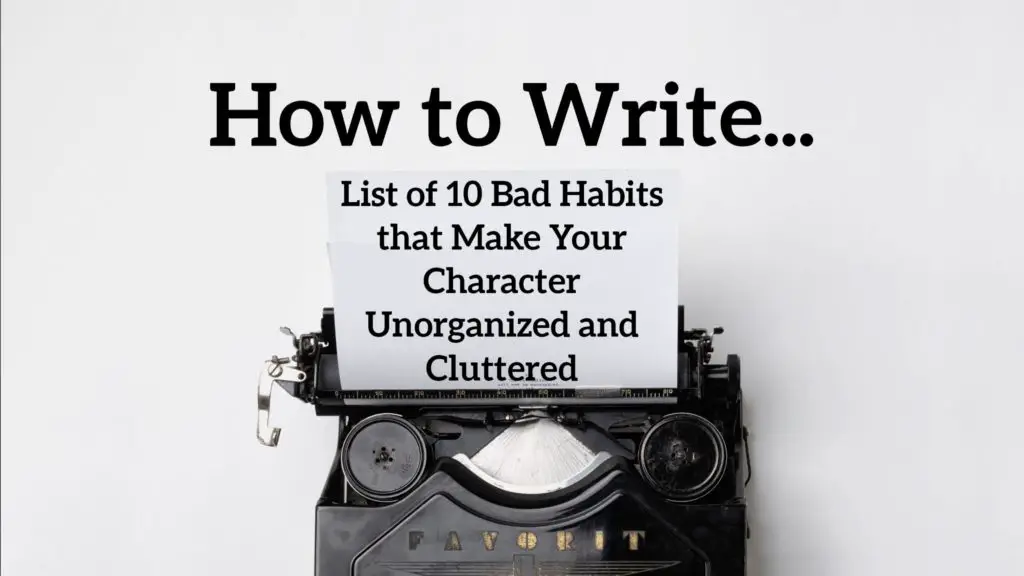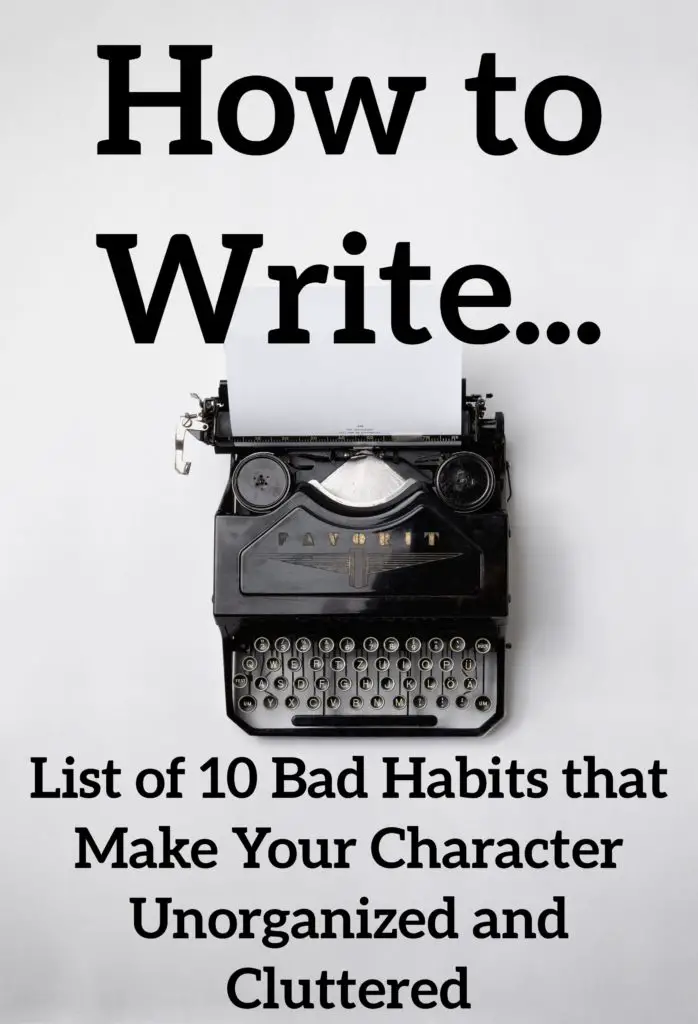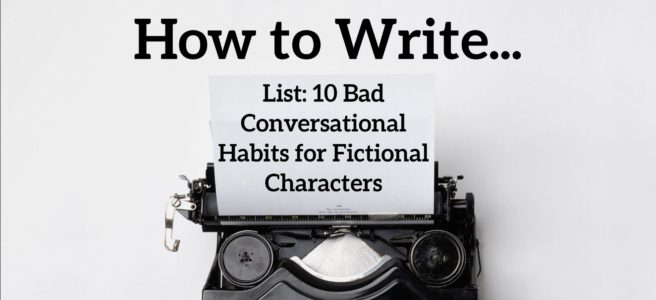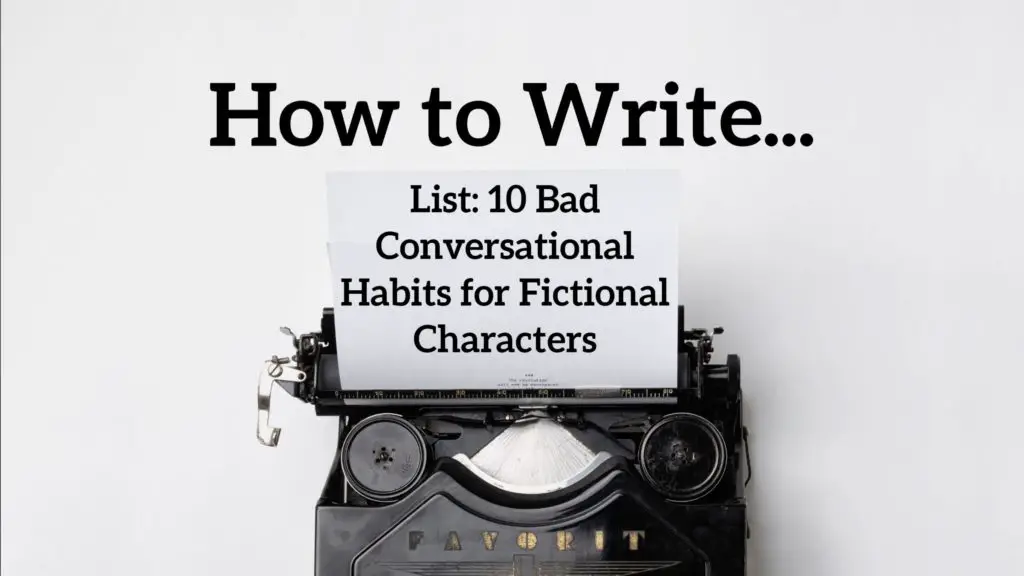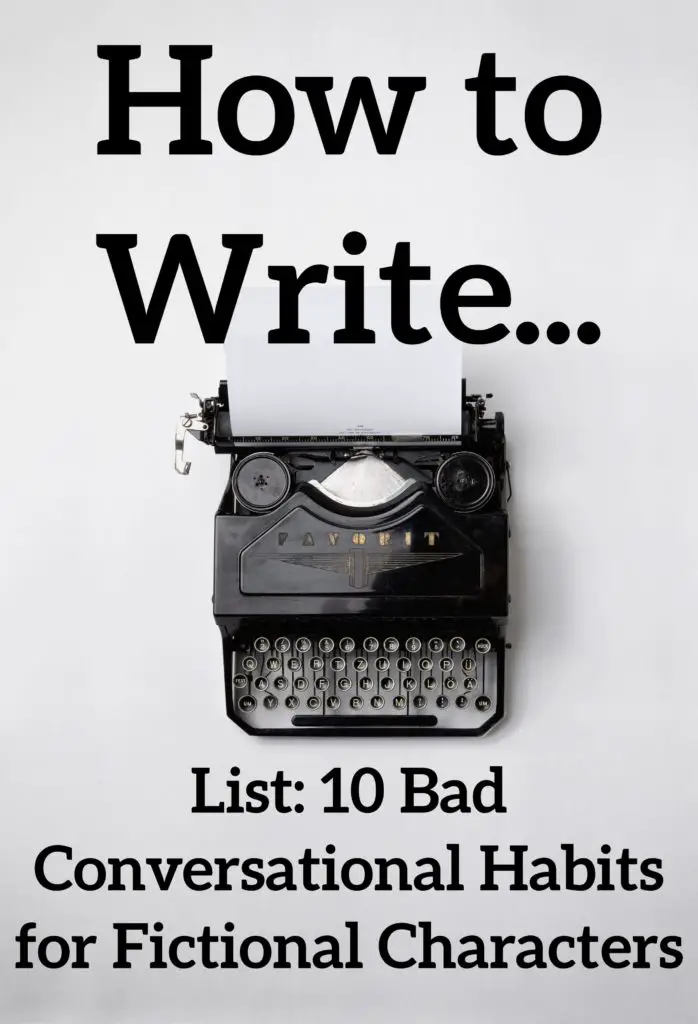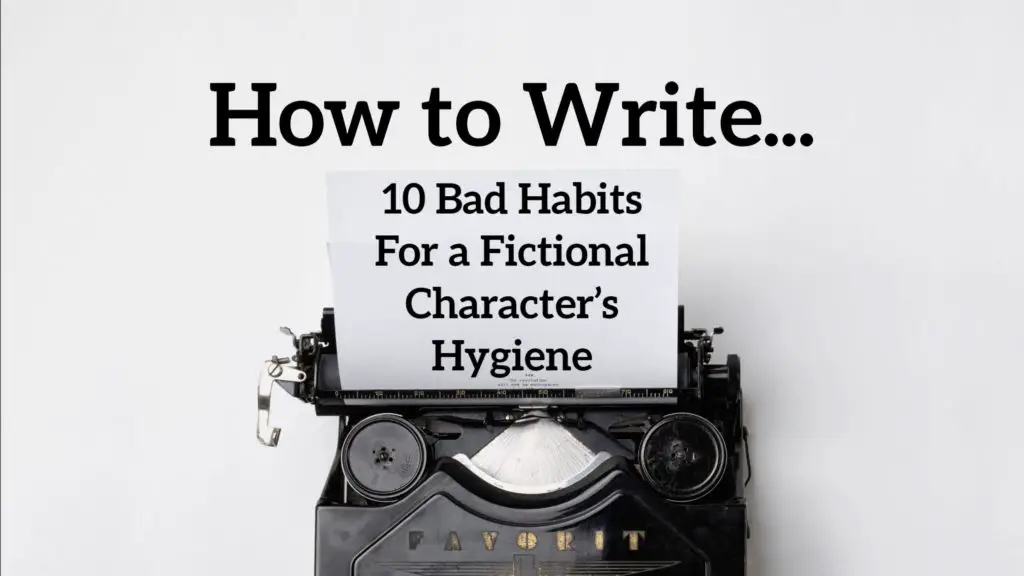
10 Bad Habits For a Fictional Character’s Hygiene
10 bad habits for a fictional character’s hygiene
Use bad habits as a writing tool for fictional characters. Write bad habits into their character and they will be more familiar to your reader. Use this bad habit list to help as writing prompts for your fictional characters.
Interested in starting a blog of your own? Check out Bluehost.
Try Grammarly, The Free tool that should be in every writer’s toolbelt.
10 Bad Habits For a Fictional Character’s Hygiene
- Not changing sheets
- Forgetting to brush the tongue
- Not using lotion for dry skin
- Scratching flaky skin
- Not brushing after a meal
- Never cleaning under fingernails
- Not clipping toenails regularly
- Never using Quetips
- Over spraying perfume and cologne
- Never using floss
10 Bad Habits For a Fictional Character’s Hygiene
Interested in starting a blog of your own? Check out Bluehost.
Try Grammarly, The Free tool that should be in every writer’s toolbelt.
Bad habits in hygiene can lead to certain consequences.
Will they get a certain bacterial infection?
Will they get a fungal infection?
Will they be the smelly kid?
Will a bully make fun of them for their bad hygiene?
Write some of your fictional characters with these bad habits in order to make them appear to be bad with certain hygiene habits.
Why you would want to be thinking about bad habits for your fictional characters that you are writing?
Bad habits help your audience resonate with your characters.
They make our characters more believable and more human.
Adding a few bad habits to our characters will make them more enjoyable to our readers. After all, no human is perfect and that should include not all but most of our fictional characters.
Hope this helps!
Interested in starting a blog of your own? Check out Bluehost.
Try Grammarly, The Free tool that should be in every writer’s toolbelt.
10 Bad Habits For a Fictional Character’s Hygiene
Other Popular posts you might love to dig into:
How To Write 4 Scenes That Reveal Who Your Character Is Seamlessly
4 Tips How to Write your Character Hitting Rock Bottom
5 Tricks How to Hide Your Villain Right Before Their Eyes
Interested in starting a blog of your own? Check out Bluehost.
Try Grammarly, The Free tool that should be in every writer’s toolbelt.
10 Bad Habits For a Fictional Character’s Hygiene

Make sure your posts are readable. Use this readability score check
